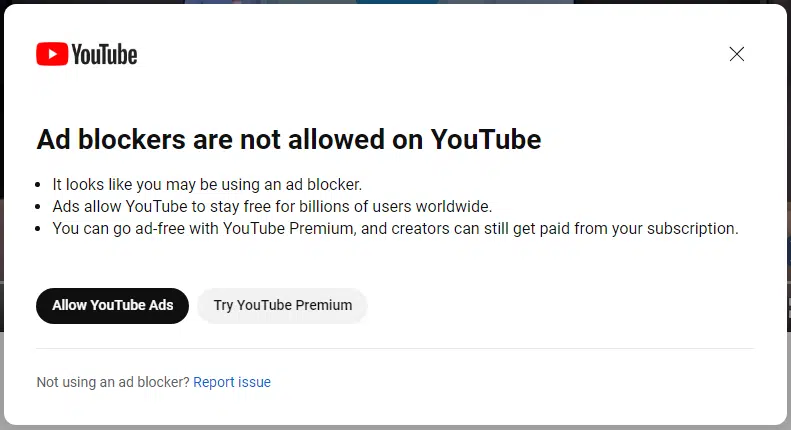YouTube wants users to stop using ad blockers
YouTube wants people using ad blockers to allow YouTube Ads, so the platform is experimenting with a new way to restrict video content.
“Ad blockers are not allowed on YouTube.” That’s the message YouTube may show to some users who use ad blockers. It’s part of what appears to be a small experiment the platform is running.
Why we care. In theory, this could mean more views for YouTube Ads. The question is whether those users will be at all receptive to YouTube Ads – they may simply choose to abandon watching a video or, more drastically, ditch the entire platform.
Ad blockers are not allowed on YouTube. Here’s what the message looks like, as shared via Reddit:

It says:
- It looks like you may be using an ad blocker.
- Ads allow YouTube to stay free for billions of users worldwide.
- You can go ad-free with YouTube Premium, and creators can still get paid from your subscription.
It then offers users two choices: Allow YouTube Ads or Try YouTube Premium.
How this message is triggered. This screen could appear whenever a user who has installed an ad blocker tries to view YouTube content.
Interesting timing? Google yesterday unveiled its new Search Generative Experience. It’s too early to know the impact SGE may have on your paid and organic search performance (not to mention Google’s ad business).
But video content and video ads may become more valuable for some brands that need visibility as a result of lost traffic or clicks in search. This would also mean YouTube wants to make sure its users are seeing as many ads as possible.
Related stories
New on Search Engine Land